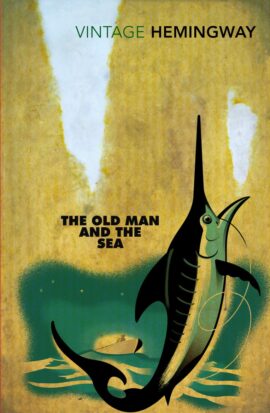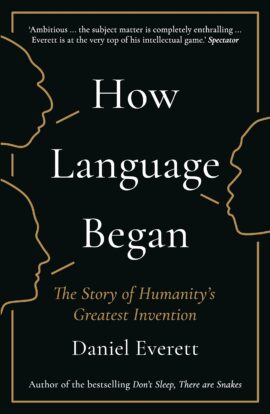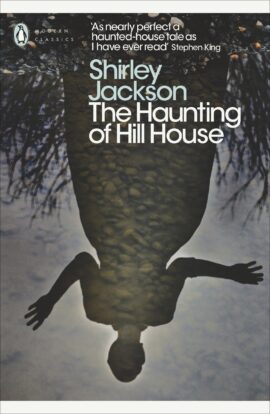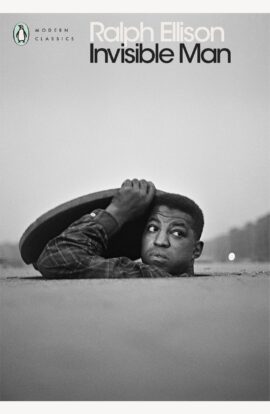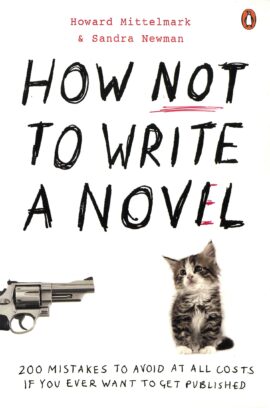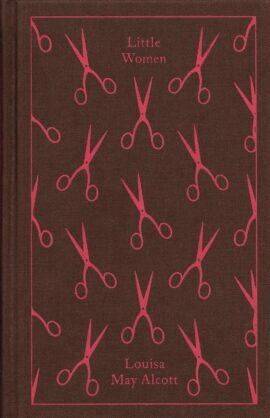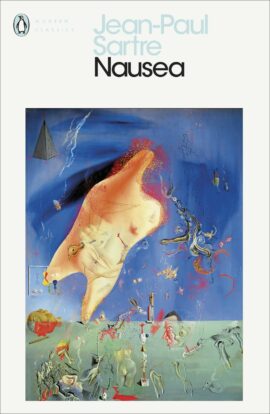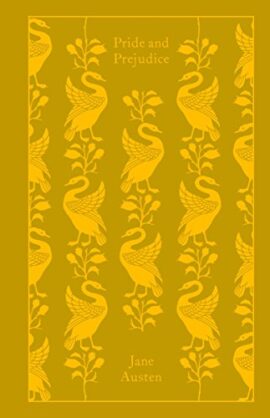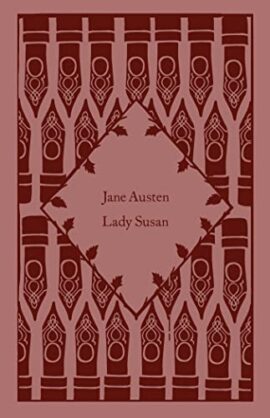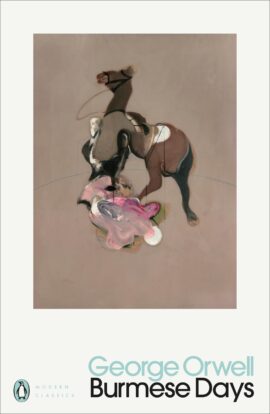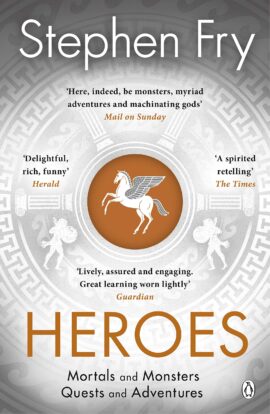Affichage de 176–200 sur 246 résultatsTrié par popularité
Slaughterhouse 5:Children ‘s Crusade a Dirty-Dance With Death
Prisoner of war, optometrist, time-traveller - these are the life roles of billy pilgrim, hero of this miraculously moving, bitter and funny story of innocence faced with apocalypse slaughterhouse 5 is one of the worlds great anti-war books centring on the infamous fire-bombing of dresden in the second world war, billy pilgrims odyssey through time reflects the journey of our own fractured lives as we search for meaning in what we are afraid to know
House of the Spirits
As a girl, Clara del Valle can read fortunes, make objects move as if they had lives of their own, and predict the future. Following the mysterious death of her sister, Rosa the Beautiful, Clara is mute for nine years. When she breaks her silence, it is to announce that she will be married soon to the stern and volatile landowner Esteban Trueba. Set in an unnamed Latin American country over three generations, "The House of the Spirits" is a magnificent epic of a proud and passionate family, secret loves and violent revolution.
the-end-of-the-affair–vintage-classics-
With a new introduction by Monica AliThe love affair between Maurice Bendix and Sarah, flourishing in the turbulent times of the London Blitz, ends when she suddenly and without explanation breaks it off. Two years later, after a chance meeting, Bendix hires a private detective to follow Sarah, and slowly his love for her turns into an obsession.
The Old Man and the Sea
Set in the Gulf Stream off the coast of Havana, Hemingway's magnificent fable is the tale of an old man, a young boy and a giant fish. This story of heroic endeavour won Hemingway the Nobel Prize for Literature. It stands as a unique and timeless vision of the beauty and grief of man's challenge to the elements.The best story Hemingway has written... No page of this beautiful masterwork could have been done better - Sunday Times
For Whom the Bell Tolls
High in the pine forests of the Spanish Sierra, a guerrilla band prepares to blow up a vital bridge. Robert Jordan, a young American volunteer, has been sent to handle the dynamiting. There, in the mountains, he finds the dangers and the intense comradeship of war. And there he discovers Maria, a young woman who has escaped from Franco's rebels...
The Unhappiness of Being a Single Man: Essential Stories (Pushkin Press Classics)
The best stories by the one of the twentieth century's greatest and most influential writersNo one has captured the modern experience, its wild dreams, strange joys, its neuroses and boredom, better than Franz Kafka. His vision, with its absurdity and twisted humour, has lost none of its force or relevance today. This essential collection, translated and selected by Alexander Starritt, casts fresh light on Kafka's genius.Alongside brutal depictions of violence and justice are jokes and deceptively slight, mysterious fables. These unforgettable pieces reflect the brilliance at the core of Franz Kafka, arguably most fully expressed within his short stories. Together they showcase a writer of unmatched imaginative depth, capable of expressing the most profound reality with a wry smile.
How Language Began: The Story of Humanity’s Greatest Invention
In his groundbreaking new book Daniel Everett seeks answers to questions that have perplexed thinkers from Plato to Chomsky: when and how did language begin? What is it? And what is it for?Daniel Everett confounds the conventional wisdom that language originated with Homo sapiens 150,000 years ago and that we have a 'language instinct'. Drawing on evidence from a wide range of fields, including linguistics, archaeology, biology, anthropology and neuroscience, he shows that our ancient ancestors, Homo erectus, had the biological and mental equipment for speech one and half million years ago, and that their cultural and technological achievements (including building ocean-going boats) make it overwhelmingly likely they spoke some kind of language.How Language Began sheds new light on language and culture and what it means to be human and, as always, Daniel Everett spices his account with incident and anecdote. His book is convincing, arresting and entertaining.
Fables Livres I à VI (Pocket classiques)
LES GRANDS TEXTES DU XVIIe SIÈCLE À quarante-sept ans, La Fontaine n'a guère connu de grands succès avec son théâtre et ses contes grivois. Avec les premiers livres des Fables, dédiés au Grand Dauphin, fils aîné de Louis XIV, le miracle se produit. La fable, cette " chose légère ", est tour à tour récit, comédie, farce, fabliau, féerie. Le fabuliste devient enchanteur et sorcier, inventeur d'un opéra où hommes, animaux et nature sont observés par un poète incomparable de malice et de sagesse. Rien n'égale son naturel, son rythme, sa musique, sa tendresse, sa souveraine liberté. Son sourire et sa légèreté atteignent le comble de l'art et relèvent bien du miracle. @ Disponible chez 12-21 L'ÉDITEUR NUMÉRIQUE About the Author Jean de La Fontaine est né en 1621 à Château-Thierry. Après des études marquées par l'influence janséniste, il monte à Paris (1645), où il étudie le droit et fréquente les milieux littéraires. Devenu avocat au Parlement, il traverse de graves difficultés financières et succède à son père dans les Eaux et Forêts en 1652. La chute du surintendant royal Nicolas Fouquet, qui l'avait pris sous sa protection, entraîne sa disgrâce et un " exil " momentané en Limousin. De retour à Paris, il entre au service de la duchesse-douairière d'Orléans (1664), menant alors une vie mondaine et littéraire brillante (Contes, 1665, premières Fables, 1668). Auprès de Madame de la Sablière, il rencontre les grands auteurs de son temps. En 1675 ses Nouveaux Contes, jugés trop licencieux, sont interdits de publication : cependant, il est élu à l'Académie française en 1683. La suite de ses Fables paraît en 1679, les dernières en 1693. Frappé par la maladie en 1692, il se convertit et consacre la fin de sa vie à la poésie religieuse. Il s'éteint à Paris en 1695.
The Haunting of Hill House
Four seekers have arrived at the rambling old pile known as Hill House: Dr. Montague, an occult scholar looking for solid evidence of psychic phenomena: Theodora, his lovely and lighthearted assistant: Luke, the adventurous future inheritor of the estate: and Eleanor, a friendless, fragile young woman with a dark past. As they begin to cope with chilling, even horrifying occurrences beyond their control or understanding, they cannot possibly know what lies ahead. For Hill House is gathering its powers - and soon it will choose one of them to make its own.
Invisible Man
Ellison's blistering and impassioned first novel, winner of the prestigious American National Book Award, tells the extraordinary story of a man who is invisible 'simply because people refuse to see me'. Yet his powerfully depicted adventures - from a terrifying Harlem race riot to his expulsion from a Southern college - go far beyond the story of one man. The lives of countless millions are evoked in this superb portrait of a generation of black Americans.
How Not to Write a Novel: 200 Mistakes to Avoid at All Costs If You Ever Want to Get Published. Howard Mittelmark and Sandra Newman
There are many ways prospective authors routinely sabotage their own work. But why leave it to guesswork? Misstep by misstep, "How Not to Write a Novel" shows how you can ensure that your manuscript never rises above the level of unpublishable drivel: that your characters are unpleasant, dimensionless versions of yourself: that your plot is digressive, tedious and unconvincing: and that your style is reliant on mangled cliches and sesquipedalian malapropisms. Alternatively, you can use it to identify the most common mistakes, avoid them and actually write a book that works. Guardian Award shortlisted novelist Sandra Newman and veteran editor Howard Mittelmark have distilled 30 years of teaching, editing, writing and reviewing fiction into a hilarious and liberating guide that is the perfect read for anyone who's ever laughed at a badly written piece of prose and for anyone who's ever penned one - and doesn't want to do it again.
Penguin English Library Frankenstein (The Penguin English Library)
The Penguin English Library Edition of Frankenstein by Mary Shelley 'Never did I behold a vision so horrible as his face, of such loathsome, yet appalling hideousness' A twisted, upside-down creation myth, Mary Shelley's chilling Gothic tale lays bare the dark side of science, and the horror within us all. It tells the story of Victor Frankenstein, who plunders graveyards to create a new being from the bodies of the dead - but whose botched creature causes nothing but murder and destruction. Written after a nightmare when its author was only eighteen, Frankenstein gave birth to the modern science fiction novel. The Penguin English Library - 100 editions of the best fiction in English, from the eighteenth century and the very first novels to the beginning of the First World War.
Little Women : With Good Wives
Nominated as one of America’s best-loved novels by PBS’s The Great American ReadPart of Penguin's beautiful hardback Clothbound Classics series, designed by the award-winning Coralie Bickford-Smith, these delectable and collectible editions are bound in high-quality colourful, tactile cloth with foil stamped into the design. Meg, Jo, Amy and Beth - four "little women" enduring hardships and enjoying adventures in Civil War New England The charming story of the March sisters, Little Women has been adored by generations. Readers have rooted for Laurie in his pursuit of Jo's hand, cried over little Beth's death, and dreamed of traveling through Europe with old Aunt March and Amy. Future writers have found inspiration in Jo's devotion to her writing. In this simple, enthralling tale, both parts of which are included here, Louisa May Alcott has created four of American literature's most beloved women.
Pride and Prejudice (Penguin Clothbound Classics)
Jane Austen’s timeless classic that explores the intricate complexities of love, societal expectations, and the power of overcoming prejudice—now in a beautiful clothbound hardcover edition designed by Coralie Bickford-Smith.When Elizabeth Bennet first meets eligible bachelor Fitzwilliam Darcy, she thinks him arrogant and conceited: he is indifferent to her good looks and lively mind. When she later discovers that Darcy has involved himself in the troubled relationship between his friend Bingley and her beloved sister Jane, she is determined to dislike him more than ever. In the sparkling comedy of manners that follows, Jane Austen shows the folly of judging by first impressions and superbly evokes the friendships, gossip, and snobberies of provincial middle-class life.Penguin Classics is the leading publisher of classic literature in the English-speaking world, representing a global bookshelf of the best works throughout history and across genres and disciplines. Readers trust the series to provide authoritative texts enhanced by introductions and notes by distinguished scholars and contemporary authors, as well as up-to-date translations by award-winning translators.
Love and Friendship: And Other Youthful Writings
Austen’s hilarious early stories and sketches—complete with her delightfully quirky spelling habits—now collected in one gorgeous clothbound volume, including Lady Susan, the basis for Whit Stillman's feature film Love and Friendship starring Kate Beckinsale and Chloë SevignyJane Austen’s earliest writing dates from when she was just eleven-years-old, and already shows the hallmarks of her mature work. But it is also a product of the times in which she grew up—dark, grotesque, often surprisingly bawdy, and a far cry from the polished, sparkling novels of manners for which she became famous. Drunken heroines, babies who bite off their mothers’ fingers, and a letter-writer who has murdered her whole family all feature in these highly spirited pieces. This edition includes all of Austen’s juvenilia, including her “History of England” and the novella Lady Susan, in which the anti-heroine schemes and cheats her way through high society. With a title that captures a young Austen’s original idiosyncratic spelling habits and an introduction by Christine Alexander that shows how Austen was self-consciously fashioning herself as a writer from an early age, this is a must-have for any Austen lover.
Lady Susan (Little Clothbound Classics)
Introducing Little Clothbound Classics: irresistible, mini editions of short stories, novellas and essays from the world's greatest writers, designed by the award-winning Coralie Bickford-SmithA Penguin Classic HardcoverRecently widowed, the unscrupulous and beautiful Lady Susan Vernon is determined to scheme her way through high society in the hope of a profitable new match - all while trying to marry off her unfortunate daughter. Ambitious and manipulative, Lady Susan is unlike any Jane Austen heroine you’ve read about before. Told through a series of letters, Jane Austen's magnificent first novella is as subversive as it is charming.
Emma (Penguin Clothbound Classics)
Now a major motion picture starring Anya Taylor-JoyPart of Penguin's beautiful hardback Clothbound Classics series, designed by the award-winning Coralie Bickford-Smith, these delectable and collectible editions are bound in high-quality colourful, tactile cloth with foil stamped into the design. Beautiful, clever, rich - and single - Emma Woodhouse is perfectly content with her life and sees no need for either love or marriage. Nothing, however, delights her more than interfering in the romantic lives of others. But when she ignores the warnings of her good friend Mr Knightley and attempts to arrange a suitable match for her protégée Harriet Smith, her carefully laid plans soon unravel and have consequences that she never expected. With its imperfect but charming heroine and its witty and subtle exploration of relationships, Emma is often seen as Jane Austen's most flawless work.
The Fire Next Time: My Dungeon Shook: Down at the Cross (Penguin Modern Classics)
Go Tell It on the Mountain (Penguin Modern Classics)
Go Tell It On The Mountain, first published in 1953, is Baldwin's first major work, a semi-autobiographical novel that has established itself as an American classic. With lyrical precision, psychological directness, resonating symbolic power, and a rage that is at once unrelenting and compassionate, Baldwin chronicles a fourteen-year-old boy's discovery of the terms of his identity as the stepson of the minister of a storefront Pentecostal church in Harlem one Saturday in March of 1935. Baldwin's rendering of his protagonist's spiritual, sexual, and moral struggle of self-invention opened new possibilities in the American language and in the way Americans understand themselves.
Modern Classics Burmese Days (Penguin Modern Classics)
Based on his experiences as a policeman in Burma, George Orwell's first novel presents a devastating picture of British colonial rule. It describes corruption and imperial bigotry in a society where, 'after all, natives were natives - interesting, no doubt, but finally ... an inferior people'. When Flory, a white timber merchant, befriends Indian Dr Veraswami, he defies this orthodoxy. The doctor is in danger: U Po Kyin, a corrupt magistrate, is plotting his downfall. The only thing that can save him is membership of the all-white Club, and Flory can help. Flory's life is changed further by the arrival of beautiful Elizabeth Lackersteen from Paris, who offers an escape from loneliness and the 'lie' of colonial life. George Orwell's first novel, inspired by his experiences in the Indian Imperial Police in Burma, Burmese Days includes a new introduction by Emma Larkin in Penguin Modern Classics.
Stephen Fry Greek Myths Series 2 Books Collection Set (Mythos, Heroes)
Mortals and Monsters. Quests and Adventures . . .__________There are Heroes - and then there are Greek Heroes.Few mere mortals have ever embarked on such bold and heart-stirring adventures, overcome myriad monstrous perils, or outwitted scheming vengeful gods, quite as stylishly and triumphantly as Greek heroes.In this companion to his bestselling Mythos, Stephen Fry brilliantly retells these dramatic, funny, tragic and timeless tales. Join Jason aboard the Argo as he quests for the Golden Fleece. See Atalanta - who was raised by bears - outrun any man before being tricked with golden apples. Witness wily Oedipus solve the riddle of the Sphinx and discover how Bellerophon captures the winged horse Pegasus to help him slay the monster Chimera.Filled with white-knuckle chases and battles, impossible puzzles and riddles, acts of base cowardice and real bravery, not to mention murders and selfless sacrifices, Heroes is the story of what we mortals are truly capable of - at our worst and our very best.___________'Ebullient and funny' The Times'Entertaining and edifying' Daily Telegraph'A rollicking good read' Independent'Fry exhibits enormous erudition and enthusiasm' Mail on Sunday'The Greek gods of the past become relatable as pop culture, modern literature and music are woven throughout. Joyfully informal yet full of the literary legacy' Guardian
The Castle
The Castle is the story of K., the unwanted Land Surveyor who is never to be admitted to the Castle nor accepted in the village, and yet cannot go home. As he encounters dualities of certainty and doubt, hope and fear, and reason and nonsense, K.'s struggles in the absurd, labyrinthine world where he finds himself seem to reveal an inexplicable truth about the nature of existence. Kafka began The Castle in 1922 and it was never finished, yet this, the last of his three great novels, draws fascinating conclusions that make it feel strangely complete.









